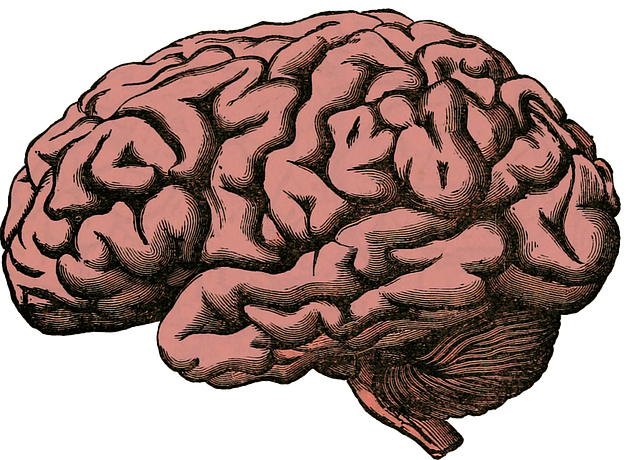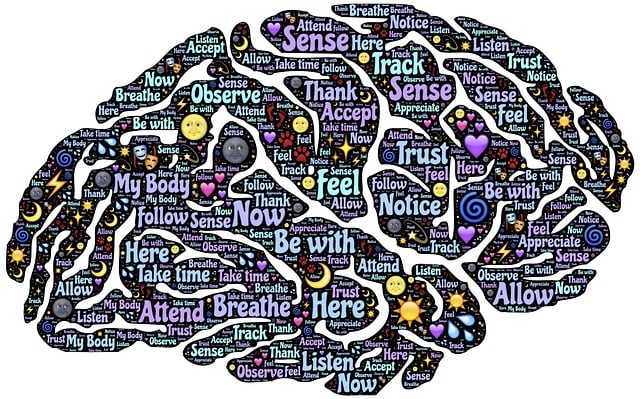Mental wellness group facilitation offers a safe space for adults to connect, share experiences, and learn through open communication, empathy, and structured agendas. This approach enhances mindfulness, develops inner strength, and promotes effective coping strategies tailored to individual needs. Key techniques include boundary setting, crisis intervention, active participation, and mindfulness practices like breathing exercises, body scans, and guided meditations. Creating a supportive environment with clear boundaries and active listening fosters trust and encourages emotional growth, making it crucial for therapy for adults focusing on mindfulness.
Mental wellness group facilitation offers powerful support for individuals navigating challenges. This article explores effective techniques for leading such groups, focusing on mindfulness as a therapy for adults. We delve into creating safe spaces, fostering connection, and employing communication strategies that empower participants. By understanding these facilitative approaches, professionals can enhance the impact of mental wellness programs, guiding individuals toward healing and growth through group dynamics and mindfulness practices.
- Understanding Mental Wellness Group Facilitation
- Therapy for Adults: Mindfulness Techniques to Foster Connection
- Creating a Safe and Supportive Environment
- Effective Communication Strategies for Group Leaders
Understanding Mental Wellness Group Facilitation

Mental wellness group facilitation involves creating a safe, supportive space where individuals can come together to share experiences and learn from one another. This collective approach to therapy for adults offers unique benefits, such as enhanced mindfulness and inner strength development. By fostering open communication and empathy among group members, facilitators encourage emotional expression and coping strategies tailored to individual needs.
Effective group facilitation techniques include setting clear boundaries, establishing a structured agenda, and providing Crisis Intervention Guidance when needed. Facilitators play a crucial role in managing group dynamics, ensuring every voice is heard, and promoting active participation. Through these methods, individuals gain valuable insights into their mental health, learn effective mood management skills, and build resilience to navigate life’s challenges with greater ease.
Therapy for Adults: Mindfulness Techniques to Foster Connection

In the realm of therapy for adults, mindfulness techniques have emerged as a powerful tool to foster connection and enhance mental wellness. By encouraging individuals to focus on the present moment and non-judgmentally observe their thoughts and feelings, facilitators create a safe space for emotional healing processes to unfold. This practice not only improves attention span but also strengthens the mind-body connection, enabling clients to develop a deeper understanding of themselves and their reactions.
Mindfulness goes beyond simple meditation; it’s about integrating awareness into everyday activities. During group sessions, facilitators can guide participants through mindful breathing exercises, body scans, or even simple walking meditations. These practices help individuals cultivate a sense of calm, reduce stress, and improve overall emotional regulation. Moreover, mindfulness techniques facilitate open communication within the group, fostering a supportive environment where members can share their experiences and connect on a deeper level, contributing to effective risk management planning for mental health professionals.
Creating a Safe and Supportive Environment

Creating a safe and supportive environment is paramount when facilitating mental wellness groups. This involves cultivating a non-judgmental space where each participant feels seen, heard, and valued. As a group facilitator, it’s crucial to set clear boundaries, establish ground rules that prioritize respect and confidentiality, and encourage active participation while ensuring no one is pressured to share more than they’re comfortable with. Techniques like active listening, validating emotions, and normalizing experiences can help build trust and foster an atmosphere conducive to healing and growth.
Mindfulness practices play a significant role in cultivating this safe haven. Encouraging mindfulness exercises tailored for adults, such as guided meditation or body scans, can aid individuals in staying present, managing stress, and regulating their moods. By integrating these practices into group sessions, facilitators not only enhance emotional intelligence but also empower participants with tools to navigate their mental wellness journeys effectively. Additionally, focusing on mood management through mindfulness can help individuals develop strategies for coping with anxiety, depression, or other mental health challenges in a supportive setting.
Effective Communication Strategies for Group Leaders

Effective communication is a cornerstone for successful group facilitation, especially when guiding individuals on their mental wellness journeys. Group leaders play a pivotal role in creating a safe and supportive environment where every member feels heard and valued. One key strategy involves active listening, encouraging participants to express their thoughts and feelings openly without judgment. This technique fosters trust and allows the leader to gain valuable insights into each individual’s unique experiences and challenges.
Additionally, clear and concise communication is essential. Group leaders should use simple language, ensuring everyone understands the discussion’s purpose and any tasks or actions required. Incorporating a variety of communication methods—from verbal instructions to visual aids and even interactive exercises—can enhance engagement. This diverse approach caters to different learning styles and keeps the group actively involved, promoting better emotional regulation and mindfulness practices that can contribute to anxiety relief.
Mental wellness group facilitation plays a pivotal role in supporting individuals’ mental health journeys. By understanding the nuances of this approach, therapists can create safe spaces that encourage connection and healing through mindfulness techniques. Utilizing effective communication strategies ensures every member feels valued, fostering a supportive environment that enhances overall therapy outcomes for adults seeking mental wellness support.














